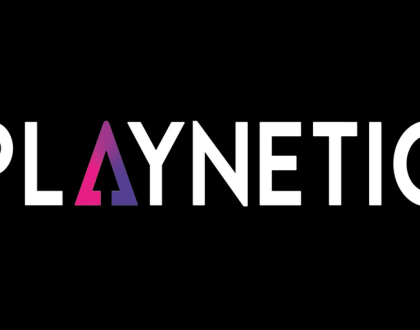Crypto Payment Gateways: Benefits and Risks

Most individuals and businesses are becoming increasingly curious about the potential of crypto payment gateways. While these platforms offer enticing benefits such as lower transaction fees and faster processing times, I must emphasize that they also pose significant risks to your finances and the broader global economy. In this post, I will explore the intricacies of crypto payment gateways, examining the challenges and pitfalls they present as they navigate the complex world of digital currencies and financial regulations.
Understanding Crypto Payment Gateways
Before delving into the complexities of crypto payment gateways, it's vital to grasp their fundamental roles in global finance. They serve as intermediaries that facilitate cryptocurrency transactions, converting digital currencies into fiat and vice versa. As you navigate this innovative landscape, it's crucial to be informed of both their benefits and the inherent risks involved.
Definition and Functionality
An informative perspective on crypto payment gateways reveals that they are systems designed to enable and manage online cryptocurrency transactions. They provide tools for merchants and consumers alike to interact seamlessly with digital currencies while ensuring security and compliance with regulations. By understanding their functionality, you can better appreciate how they streamline the payment process.
Types of Crypto Payment Gateways
An assessment of crypto payment gateways yields various types, each catering to different market needs. Here's a breakdown of the most common types:
| Type | Description |
| Hosted Payment Gateways | Third-party platform handling transactions. |
| Self-hosted Payment Gateways | Merchant runs their own payment service. |
| Payment Processors | Facilitate and track transactions for merchants. |
| Decentralized Gateways | Enable direct peer-to-peer transactions. |
| API Payment Gateways | Integrate cryptocurrency payment functionality into apps. |
Knowing the differences between these types can help you choose the right solution for your business or investment strategy.
Gateways evolve continuously with technology, offering new features and enhancements. Retailers and consumers alike benefit from these innovations, tailored to meet varying needs in the fast-paced financial ecosystem. Here's an additional look at what distinguishes these gateways:
| Feature | Importance |
| Security Protocols | Essential for fraud prevention. |
| Integration Options | Streamline your business processes. |
| Supported Cryptocurrencies | Diversity opens consumer choices. |
| Transaction Fees | Affect overall profitability. |
| User Support & Resources | Crucial for resolving issues swiftly. |
Knowing what features to prioritize when selecting a crypto payment gateway will greatly influence your success in the crypto economy.
Risks Associated with Crypto Payment Gateways
While the benefits of crypto payment gateways are often highlighted, it is crucial to acknowledge the inherent risks associated with them. From security breaches to regulatory uncertainties, these platforms can expose users and businesses to significant vulnerabilities. I believe understanding these risks is important for anyone considering these payment solutions as part of their financial strategy.
Security Vulnerabilities
Payment gateways that handle cryptocurrencies are not immune to security vulnerabilities. Cyberattacks, hacking, and phishing schemes pose real threats to users' funds and sensitive information. I recommend choosing platforms that prioritize security measures, such as two-factor authentication and cold storage, to mitigate these risks effectively.
Market Volatility
Payment gateways dealing with cryptocurrencies also face the challenge of market volatility, which can impact transactions significantly. I have witnessed how the value of cryptocurrencies can fluctuate wildly within short periods, leading to potential losses for both businesses and consumers.
Market volatility is an undeniable characteristic of the cryptocurrency landscape. As prices can swing dramatically, transactions initiated on a crypto payment gateway can leave you paying more or receiving less than anticipated. This unpredictability can complicate financial planning and budgeting, making it crucial for you to be aware of this risk before integrating crypto payment solutions into your operations. Ensuring you have mechanisms in place to handle such fluctuations can help you safeguard your investments and maintain stable cash flow.
Regulatory Challenges
Some of the most significant hurdles facing crypto payment gateways arise from the ever-evolving regulatory landscape. Governments worldwide are grappling with how to classify cryptocurrencies, leading to a patchwork of regulations that can be confusing and contradictory. As a user or provider of these gateways, you must navigate these complexities to maintain compliance and legitimacy, which can ultimately hinder the seamless transactions that crypto enthusiasts seek.
Compliance Issues
On the compliance front, crypto payment gateways face a myriad of challenges, including anti-money laundering (AML) and know your customer (KYC) regulations. As you engage with these platforms, you may encounter stringent verification processes designed to prevent illicit activities. While these measures are crucial for financial integrity, they can also create friction in the user experience and deter potential adopters.
Global Variations in Regulation
With regulatory standards varying widely across regions, businesses operating in multiple jurisdictions often find themselves in precarious positions. Each country's approach to crypto regulation can differ significantly, leading to confusion and potential legal risks. This inconsistency creates additional pressure for crypto payment gateway providers, who must stay informed and adapt quickly to align with the varying requirements of each market.
This global variation in regulation not only affects compliance but also influences customer trust and adoption. For instance, in regions with robust regulations, users may feel safer and more inclined to use crypto services, while in jurisdictions with lax or ambiguous rules, skepticism may prevail. As I consider the impact of these regulatory differences, it's clear that they substantially shape the operational landscape for crypto payment gateways, demanding ongoing vigilance, adaptability, and a proactive approach to ensure compliance and foster trust among users.
Benefits of Using Crypto Payment Gateways
To fully understand the potential impact of crypto payment gateways, it's important to recognize the myriad benefits they offer. These innovative solutions provide a decentralized alternative to traditional payment systems, presenting opportunities for reduced transaction costs, increased accessibility, and enhanced security. As I explore these benefits, you may find how they align with your business goals and customer preferences, paving the way for a more modern financial landscape.
Lower Transaction Fees
An important aspect of crypto payment gateways is their lower transaction fees compared to conventional banking methods. While traditional payment processors often charge hefty fees, cryptocurrencies offer much lower costs. I've seen firsthand how this can significantly boost your profit margins, especially if you conduct high-volume transactions. By leveraging these lower fees, you can allocate more resources to innovation and customer satisfaction.
Increased Accessibility
Crypto payment gateways also provide increased accessibility to global markets. With traditional banking systems often hampered by restrictive regulations and high fees, I have found that cryptocurrencies can open doors to new customer bases. This means you can engage with clients worldwide, regardless of their banking options. Additionally, as more individuals and businesses adopt digital currencies, your ability to accept cryptocurrencies ensures that you remain competitive and relevant in a rapidly changing financial environment.
Benefits of using crypto payment gateways go beyond mere accessibility; they also provide a sense of empowerment for both merchants and consumers. You can accept transactions from customers who may not have access to traditional banking services, allowing you to tap into underbanked populations. This capability not only expands your customer base but also encourages financial inclusion. By embracing these innovative payment options, you position yourself as a forward-thinking business in an increasingly digital world.
Future of Crypto Payment Gateways
Once again, the future of crypto payment gateways seems poised for significant evolution. As the global financial landscape adapts to the rapid adoption of digital currencies, I believe these gateways will need to innovate continuously to maintain their relevance. Regulatory challenges, security concerns, and consumer trust will shape their development, but with the right strategies, they could become a cornerstone of modern finance.
Trends and Innovations
Innovations in technology are driving the evolution of crypto payment gateways. I see a growing emphasis on security features, interoperability among different cryptocurrencies, and user-friendly interfaces that allow for seamless transactions. Additionally, the rise of decentralized finance (DeFi) solutions is encouraging mainstream adoption, further influencing the development of these gateways.
Potential Impact on Global Finance
For the financial landscape, the impact of crypto payment gateways can be profound. These gateways can democratize access to financial services, facilitating cross-border transactions with reduced fees. Furthermore, they can enhance transparency and efficiency in payments, attracting a broader audience of businesses and consumers.
Impact on global finance cannot be understated. By streamlining transaction processes and offering efficient alternatives to traditional banking, crypto payment gateways stand to reshape how businesses interact with customers across borders. I anticipate that this will lead to increased financial inclusivity, fostering economic growth in emerging markets while challenging the dominance of established financial systems. However, this shift necessitates careful consideration of regulatory frameworks and consumer protection to ensure a stable integration into the global economy.
Best Practices for Businesses
Unlike traditional payment methods, crypto payment gateways require a proactive approach to safeguard against risks. As a business owner, it's crucial to adopt best practices that involve thorough research, compliance with legal regulations, and continuous monitoring of your transactions. Utilizing reliable crypto payment solutions can enhance customer trust and overall efficiency, but you should also remain transparent about the inherent risks of digital currencies.
Risk Management Strategies
Best risk management strategies for handling cryptocurrencies involve diversifying your payment options, setting transaction limits, and maintaining comprehensive insurance coverage. By adopting a cautious approach, you can significantly mitigate the financial exposure associated with fluctuating crypto markets while ensuring that you offer your customers the flexibility they demand.
Implementing Secure Solutions
Implementing secure solutions is imperative to protect your business and customers when utilizing crypto payment gateways. Establishing multi-signature wallets, leveraging encryption technologies, and conducting regular security audits are crucial steps to secure your digital transactions. The integrity of your payment systems directly impacts customer confidence and the overall success of your crypto initiatives.
Practices like integrating robust authentication protocols, educating your team about phishing attacks, and maintaining up-to-date software systems play a vital role in ensuring security. It's important for you to choose a payment gateway that prioritizes cyber defense and compliance measures. Regularly updating your security practices will not only protect your assets but will also instill confidence in your customers, fostering a trustworthy environment for cryptocurrency transactions.
Summing up
Taking this into account, I believe that while crypto payment gateways offer innovative solutions for global finance, they inherently carry considerable risks that you need to be aware of. The volatile nature of cryptocurrencies, regulatory uncertainties, and security vulnerabilities can pose significant challenges. As you navigate this space, it's vital to weigh the benefits against the potential pitfalls carefully. By staying informed and vigilant, you can make smarter decisions when integrating cryptocurrencies into your financial strategies.
FAQs
What are crypto payment gateways?
Crypto payment gateways are platforms that facilitate transactions between digital currencies and fiat currencies. They act as intermediaries that help merchants and consumers process payments securely while adhering to financial regulations.
What are the main types of crypto payment gateways?
The main types of crypto payment gateways include hosted payment gateways, self-hosted payment gateways, payment processors, decentralized gateways, and API payment gateways. Each type serves different purposes and offers unique features tailored to various needs.
What are the risks associated with using crypto payment gateways?
Risks include security vulnerabilities such as cyberattacks and phishing schemes, market volatility that can affect transaction values, and regulatory challenges stemming from inconsistent global regulations. Compliance issues with anti-money laundering (AML) and know your customer (KYC) regulations are also significant concerns.
How can businesses manage the risks of crypto payment gateways?
Businesses can manage risks by choosing secure platforms with robust security features, setting transaction limits, maintaining insurance coverage, and staying updated with regulatory changes. Implementing secure solutions and following best practices can help mitigate financial exposure and enhance customer trust.
What benefits do crypto payment gateways offer?
Benefits include lower transaction fees compared to traditional banking methods, increased accessibility to global markets, and the ability to accept transactions from customers without traditional banking services. These gateways also promote financial inclusion and offer a modern alternative to conventional payment systems.
Recommended Posts

Playnetic Gains MGA Approval for Expansion
October 3, 2024

Malta’s economy records €406.5m surplus in Q2
October 1, 2024

Maltese Firms Boost Revolut’s B2B Growth
September 30, 2024




